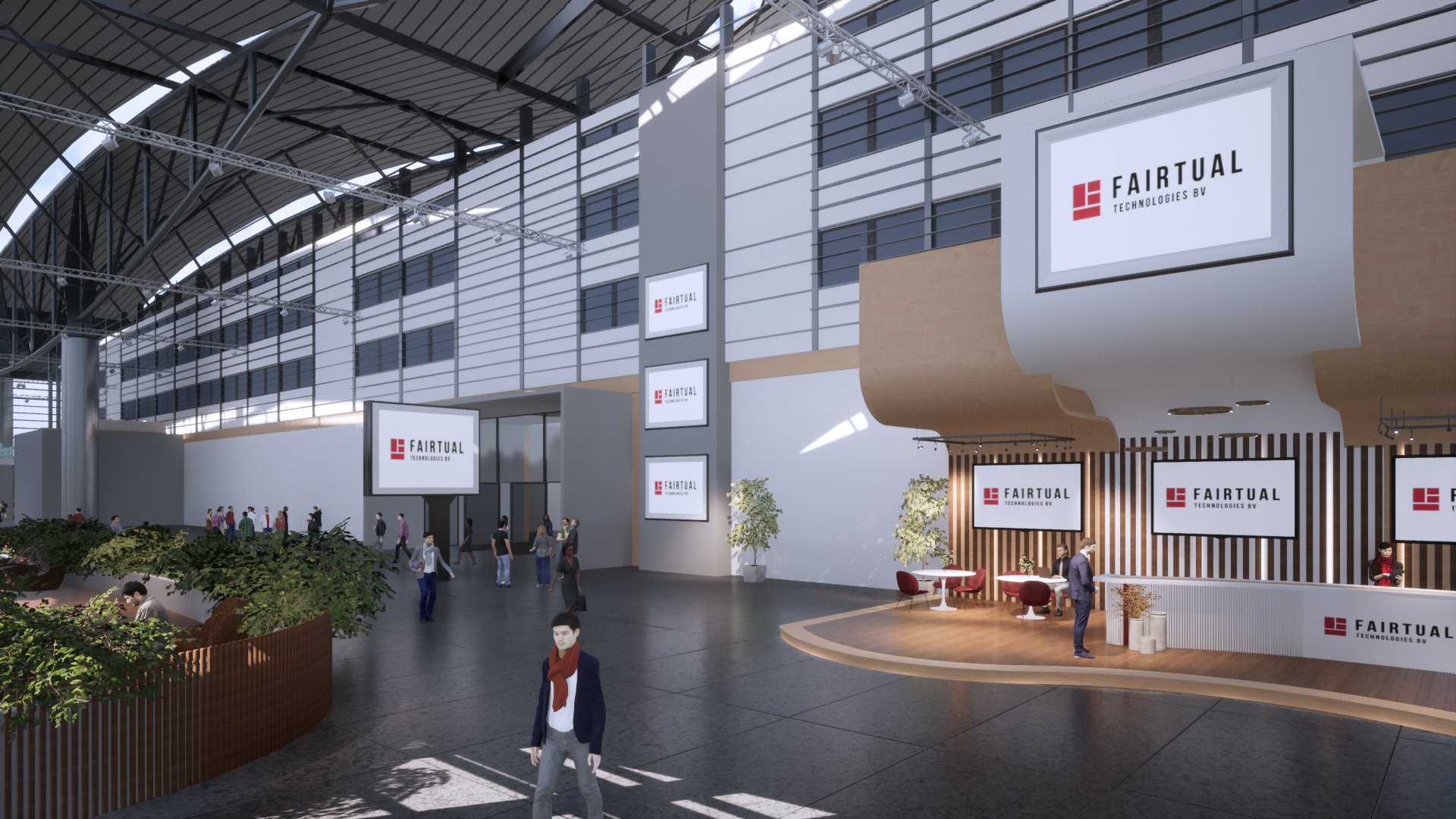For only a handful of sectors is the crisis not a curse but a blessing. Just look at the makers of mouth masks, disinfectant gel and toilet paper. However, with the roll-out of the vaccine, it looks like these sectors will return to their status quo. Yet there is one sector whose explosive growth cannot be reversed just like that. Virtual events are here to stay.
Virtual events still often bring to mind the static and messy cases of old. Yet we have long passed those times. Today, virtual events have become real experiences in themselves. With beautiful 3D environments and a strong focus on usability, they were the perfect alternative to physical events during the many lockdowns of the past year. But is there a future for virtual fairs now that vaccination has begun? We asked Michèle Roggemans, our COO, for her opinion.
Now that we are perhaps in the final stages of the crisis, it looks as if physical events will soon be allowed to start up again. Can organisers of virtual events compete with these giants? Michèle: Boxing up was never our intention. From the very beginning, before there was even a corona crisis, our aim has been to cooperate with the organisers of physical events. Both types of events have their advantages and disadvantages. Today, it is important to give visitors the choice of how they want to experience an event. In this way, the largest possible target group is reached.
However, there are organisers who describe virtual fairs and conferences as something temporary. It is compared, for example, to chicory versus coffee in times of war. Perfectly passable but not comparable with the original. What do you say to that? Michèle: Innovation is always something that scares. It is therefore easier to go on the attack for fear that the new will replace the old. Yet we are sober enough to realise that this will never be the case. There is enough space for both types of events. Some people prefer a physical experience. Others prefer to stay at home and visit the event from the comfort of their armchair. It is a matter of letting the visitors decide for themselves.
You think event organisers have nothing to fear from their virtual counterparts? Michèle: On the contrary. We see it as two sides of the same coin. By adopting a hybrid approach, events will emerge much stronger from this crisis. Times of crisis are also times for renewal and innovation. We offer this to them on a tray. It is up to the fair organisers to decide whether to accept this offer or not.
So do you see virtual events as just a supporting element? Michèle: Not that either. A virtual event can perfectly function on its own. Smaller events in particular benefit from this because the cost burden is immediately lowered. But in the past few months, we have also been able to set up many large events, such as Conway. Most of them, by the way, have already decided to hold a virtual event with us in 2021, regardless of the state of the crisis. That in itself says a lot.
You sound sure that virtual events will not just disappear. What makes you so sure? Michèle: The success of virtual fairs is undeniable. The visitors got a taste of how user-friendly and unique a virtual event can be. The luxury of being able to access a trade fair or conference from any location is something they will not give up easily. In addition, it is also an affordable service that event organisers can offer. There is no doubt about it. The future is Fairtual.
Would you like to know more about the virtual events of Fairtual Technologies? Then request your free demo now. You can also contact us by mail at info@virtualfair.be or by phone at +32 491 63.06.67.
